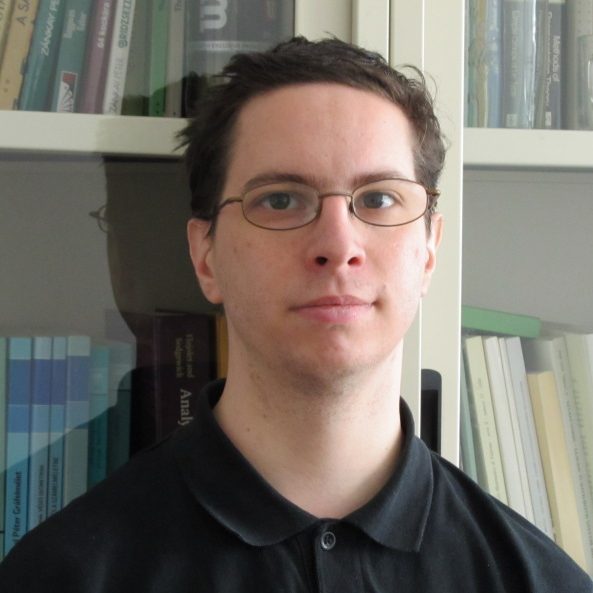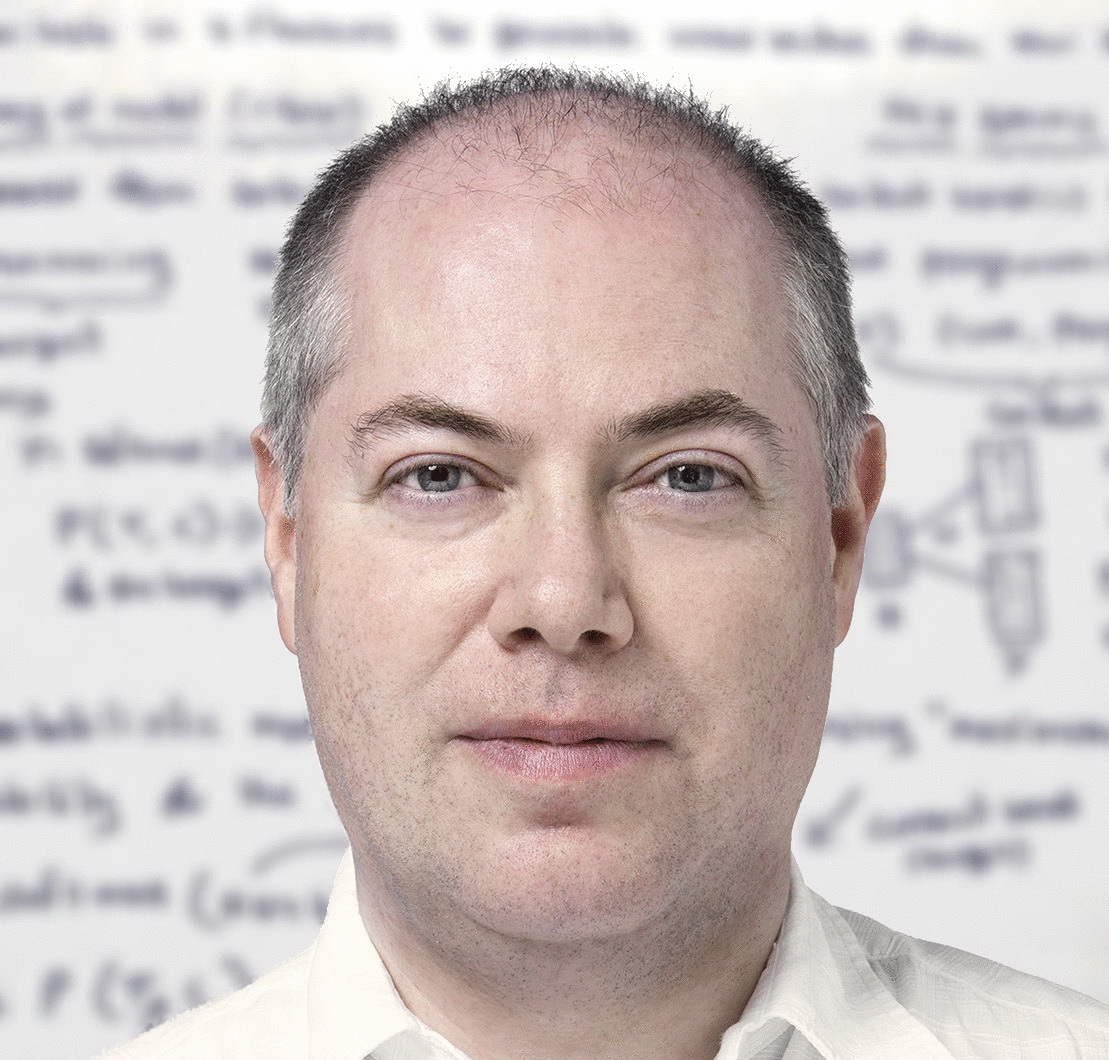Mathematics Expert in Data Analytics and Machine Learning
postgraduate specialization program
Why this training?
The fact that you are reading this website already indicates that you want to be among the winners of the socio-economic transformations generated by artificial intelligence. Moreover, you are even aware that you can make the most of the possibilities offered by artificial intelligence if you well understand and are able to use and shape AI technologies. This training of the Institute of Mathematics of Eötvös Loránd University will help you not only to have the existing artificial intelligence technologies available to you, but also to have the necessary knowledge and skills to accommodate the artificial intelligence technologies that will be created in the next decade.
The focus of the training is machine learning, its techniques and solutions from the fields of statistics and deep learning, as well as data science and big data.This is complemented by an internationally unique mathematical foundation so that, building on this, students can have a truly deep understanding of machine learning technologies. The projects are similar to real-life problems, so the students also learn the needed programming and modelling skills. We believe there is a strong market demand for experts with a deep mathematical foundation in addition to informatics skills.
Our program is intended for graduates who have learned the basics of university-level mathematics and who would like to gain deeper knowledge and competencies in the field of data science and artificial intelligence.
Feedbacks from the students
“Math and hands-on exercises are well balanced, which absolutely met my expectations”
“I received many valuable insights regarding my homework. I feel that these feedbacks on my work is the most useful part of this course.”
“My previous studies covered most of the theoretical knowledge but a university course can not compete with the attention that I got in this program.”
“I think the structure of the whole program is excellent. The difficulty level is at the right level.”
- 00days until application deadline for Fall 2024
Application
- Planned deadline: July 15, 2025
- Procedure: by the application form, issued by the institution
- Condition of acceptance: at least an undergraduate level degree in:
- mathematics or physics or
- one the following areas: economics, informatics, technology, teacher training, sciences, if the sum of earned credits in mathematical courses during the previous studies is at least 50
- Documents to be attached: the copy of the university degree and the language exam certificate and if the application is based on one of the areas listed in point b) of the acceptance criterion, then certification is needed from the completed mathematical courses
- The admission interviews will be held online via the Teams system on August 30, 2024
Further information
- The completed application form, issued by the institute, has to be sent to varga.mate@ttk.elte.hu. Administrative information: Teaching Office (1117 Budapest, Pázmány Péter sétány 1/A. 1.81) or +361/372-25-56
- Contact/responsible person: Dr. Zempléni András, ELTE Matematical Institute, Department of Probability Theory and Statistics, 1117 Budapest, Pázmány Péter sétány 1/C, tel/fax: (1) 381-2152, (1) 3722-500/8102, email: ai.training@ttk.elte.hu
Title of the certificate: mathematics expert in data analytics and machine learning postgraduate specialisation programme
- Programme starts: September 13, 2024.
- Schedule: 6-10 hours per week in the semester (Friday afternoon and Saturday morning)
- Planned number of students: 10-30
- Fee: 540 000 HUF per semester
- Duration: 2 semesters
- Language of the tuition: English
- Official information: felvi.hu
Place of the tuition: Budapest, Pázmány Péter sétány 1/C3
- Will the program be started in September 2024?
– Yes - How will the „corresponding tuition” be arranged? How often, in which time points will the courses take place? Will they be held in-person or online?
– The courses will be held on a weekly basis (most likely of Friday evenings and Saturday morning). Whether it will be in-person or in part/fully online we do not know for sure (it will depend on the COVID situation), but we plan for an in-person semester - Can the program completed besides a full-time job?
– Yes - What will be the content of the admission interview? When will the applicants get information about their acceptance?
– The admission interview will be an informal talk about the interests and mathematical/informatical background of the applicants, there is no need for formal preparations. The notifications on acceptance will be sent out shortly after. - What will be the language of the tuition?
– We plan to have it in English, but if there will be only Hungarian participants then it will be held in Hungarian, based on the teaching material written in English - What certificate will the program give? Can it be used as an entry for further education (MSc, PhD)? If yes, for which program?
– The students who complete the program, will get a certificate, titled „mathematics expert in data analytics and machine learning postgraduate specialisation programme” – but it is not an MSc degree. These credits are not corresponding to the ECTS used in the MSc, so they cannot be directly converted, but the gained knowledge might be useful in a program like MSc in Applied Mathematics or similar - Is there a need for some specific knowledge in informatics to the program?
– It is definitely useful, but we’ll be prepared for participants not knowing Python (this is the main programing language in the area) - What level of mathematical knowledge is needed to the successful completion of the program?
– Typically a completed BSc at a technical or economic program should be enough (50 mathematical credits are formally required, but we’ll count them as flexibly as possible). But if you learned math a long time ago, a quick brushing up before the program might be useful
– If one has an MSc in Maths, is the program still interesting, as the most modern approaches of machine learning are tought; however those who are familiar with all the needed mathematical background might get a waiver from the corresponding subjects (6 credit fundamental courses) - Is there a need for writing a thesis at the end of the program?
– The students are supposed to complete a project work, which is much less formal than a thesis - May the participants get the student card?
– Yes, this postgraduate course belongs to the school system, so the participants are entitled to student status at Eötvös Loránd University, including the student card.
The Institute of Mathematics at the Faculty of Sciences ELTE offers the largest spectrum of mathematical courses among institutions in Hungary.
The research profiles of the faculty members cover all branches of mathematics from algebraic topology or partial differential equations to data science and machine learning. Members of the Hungarian Academy of Sciences and many professors are teaching the best students in Hungary. Several worldwide recognized Hungarian mathematicians has worked, graduated and work in the Institute of Mathematics, going back to Lipót Fejér and Frigyes Riesz, to Pál Turán, Endre Szemerédi or László Lovász.
The Institute has strong and wide collaboration with the leading companies employing mathematicians, among others, IBM, Morgan Stanley, Citi, Ericsson, MSCI.
Summary of the program
We have incorporated the suggestions of leading experts from companies, who will employ our graduates into the curricula of our program.
The program consists of 60 credits, classified as Fundamental background knowledge (at least 6 credits are needed from this group), Core courses (at least 12 credits) and Special courses (at least 18 credits). A course of about 20-24 contact hours is worth 6 credits – the students are supposed to take 5 such courses on average per semester. Most of the courses are elective, the few obligatory ones are typeset in bold in the next table.
Fundamental background knowledge | Core courses | Special courses |
Probability Theory and Mathematical Statistic (6) | From Graph Theory to Network Science (6) | Data Analysis for Time Series (6) |
Basics in Linear Algebra and Numerical Methods (6) | Statistical Learning (6) | Advanced Modeling for Big Data and AI (6) |
Optimisation (6) | Mathematical Modeling Practice (6) | Deep Learning (6) |
Python for Data Science (6) | Data Mining Models and Algorithms (12) | Project Work (6) |
Courses

Probability Theory and Mathematical Statistics (Fall Semester)
This course gives an introduction to the basic concepts of probability theory, including multivariate distributions, copulas and limit theorems and to mathematical statistics, which are essential in understanding the properties of uncertainty in mathematical models.
Course coordinator: László Márkus

Basics in Linear Algebra and Numerical Methods (Fall Semester)
The students get familiar with the basic linear algebraic notions and operations and some corresponding efficient numerical methods.
They will use the related subroutines in Matlab or Python and understand their role in the architecture of neural networks.
Course description
Course coordinator: Ferenc Izsák, Gábor Maros

Optimisation (Fall Semester)
The students learn the basics of combinatorial optimisation, including elements of linear programming, understanding the main ideas of LP solving techniques.
They will be able to recognize convex programming problems, and will be familiar with the gradient descent algorithm.
Course description
Course coordinator: Kristóf Bérczi

Python for Data Science (Fall Semester)
This is a quick introduction to Python Basics (standard library), efficient data manipulating (NumPy, Pandas), data visualization (Matplotlib).
The students will be familiar with the machine learning basics (scikit-learn).
Course description
Course coordinator: Máté Fellner

From graph theory to network science (Fall Semester)
The aim of the course is to present the basic concepts of graph theory and the modelling methods of networks, to teach the most important algorithms. In the practices the students will learn to formalize real world problems about networks in the language of graphs and algorithms.
The students will understand the basic measures of models and the role of linear algebra in network science.
Course description
Course coordinator: Péter Csikvári

Statistical Learning (Fall Semester)
The students learn regression and classification, the variance-bias trade-off.
They will understand regularization: Ridge regression and Lasso and become familiar with generalized additive models, decision trees and support vector machines.
Course description
Course coordinator: András Zempléni

Mathematical Modeling Practice (Fall Semester)
It is an independent work on real life problems, which can be tackled by the methods learned in the first semester. The students will get continuous supervision and feedback in order to be able to create a practically relevant solution.
Course description
Course coordinator: András Zempléni

Data Mining Models and Algorithms (Spring Semester)
The aim of the course is to teach the basic approach and methodology of data mining.
The students will know the models, algorithms and tools to solve main tasks of data mining; planning and implementing simple data mining projects.
Course description
Course coordinator: András Lukács

Data Analysis for Time Series (Spring Semester)
The students learn the most important notions of time series, needed for building more complex models.
They become able to use the related subroutines in R or Python and understand their role in the architecture of neural networks.
Course description
Course coordinator: László Márkus

Advanced Modeling for Big Data and AI (Spring Semester)
The aim of the course is to understand the mathematical theory of learning; knowledge of models and algorithmic techniques for analysing data of high volume and complexity.
The students will also master methods for special types of data and domain of problems.
Course desription
Course coordinator: András Lukács

Deep Learning (Spring Semester)
The students gain understanding of neural networks; knowledge and ability to use several types of deep neural networks (e.g. convolutional networks, long-short term memory networks etc.)
In the practices the students apply neural networks for different types of data.
Course description
Course coordinator: András Lukács

Project Work (Spring Semester)
The main aim of the course is to apply the learned methods for real life problems; to shed light on hidden relations within datasets, using mathematically well-founded methods. At the end of the semester the students are supposed to write a Thesis, based on this project work, under our teachers’ supervision.
Course description
Course coordinator: András Zempléni
Lecturers

András Zempléni
Program coordinator, associate professor at the Department of Probability Theory and Statistics.
He has over 30 years of teaching experience, including courses at insurance companies or major international firms and several Bsc and MSc courses, some of them in English. He has been the coordinator of the Applied Project course for MSc students in Applied Mathematics for more than 10 years. He is the founder and head of the Applied Statistical Services Group, which provides statistical consultancy for companies.
He was a visiting researcher at the University of Sheffield and TU Munich. He publishes regularly in journals like Quality and Reliability Engineering, Journal of Statistical Theory and Applications etc. He has written several lecture notes in Probability Theory and Mathematical Statistics, including computational aspects. He started working on data science and machine learning two years ago.
Courses: Mathematical Modelling Practice,Statistical learning and Project Work

Kristóf Bérczi
He is a senior lecturer of the Department of Operations Research, Mathematics Institute of Eötvös Loránd University, and also a member of the MTA-ELTE Egerváry Research Group on Combinatorial Optimization.
He obtained his PhD from Eötvös Loránd University, and held post-doc positions at the EGRES research group and the Hungarian Academy of Sciences. He has over 10 years of teaching experience. His main research interest is combinatorial optimization, with particular interest in matroid theory and approximation algorithms.
Course: Optimisiation

Péter Csikvári
He is an associate professor of the Department of Computer Science, Mathematics Institute of Eötvös Loránd University, and the head of the Counting in Sparse Graphs Lendület Research Group of Alfréd Rényi Institute of Mathematics.
He obtained his PhD from Eötvös Loránd University, and held post-doc positions at Alfréd Rényi Institute of Mathematics and Massachusetts Institute of Technology (MIT). He has over 10 years of teaching experience.
Courses: From graph theory to network science

Imre Fekete
He is an assistant professor of the Department of Applied Analysis and Computational Mathematics.
He obtained his PhD from Eötvös Loránd University. He held postdoc position at KAUST. He was a short term visiting researcher at Public University of Navarre in Spain and at Lund University in Sweden. His research interests include theoretical and computational aspects of time discretisation techniques for ordinary, partial and neural differential equations.

Máté Fellner
He has finished his university studies in mathematics (BSc) in 2017, and applied mathematics (MSc) in 2019 from Eötvös Loránd University (ELTE). Currently, he is a research fellow of the PIT research group of bioinformatics under the supervision of Vince Grolmusz at ELTE.
He is a founder and lead programmer at Lain Consulting, a company that has a specialization in artificial intelligence consulting.
His main research interests are programming and machine learning, data mining in large biological databases, and medical data processing.
Course: Python for Data Science

Ferenc Izsák
He is an associate professor at the Department of Applied Analysis and Computational Mathematics at Eötvös Loránd University.
In the past 20 years, he was teaching students in several majors ranging from biology over physics to pure mathematics. Over 7 years he was working as a research associate at the University of Twente in the Netherlands. His scientific interests include modeling issues, construction, analysis and efficient implementation of numerical algorithms for real-life problems. He established research collaboration with a number of his former students. He also became active in the analytic and practical study of neural networks with a special emphasis on their use in numerical methods.

András Lukács
He is a senior researcher and lecturer of data science and algorithms at the Department of Computer Science. He obtained his CSc degree in mathematics from the Hungarian Academy of Sciences. He organizes and manages the Artificial Intelligence and Data Science Research Group at the Institute of Mathematics, Eötvös Loránd University.
He has deep expertise in data science and artificial intelligence, solving problems and use-cases from a wide range of domains, keeping up a good balance of mathematical and engineering approach, covering the full value chain of AI. His expertise was called in several R&D projects from the fields of telecommunication, finance, security and life sciences.
Courses: Data Mining Models and Algorithms, Advanced Modelling for Big Data and AI and Deep Learning

Gábor Maros
He is a lecturer of the Department of Applied Analysis and Computational Mathematics.
He has finished his university studies in mathematics (BSc), and applied mathematics (MSc) and obtained his PhD in 2024 from Eötvös Loránd University (ELTE). He has 5 years of teaching experience. His research interests include deep learning, theoretical and numerical aspects of partial differential equations, particularly fractional–order differential equations.

László Márkus
He is an associate professor at the Department of Probability Theory and Statistics. He has over 30 years of teaching experience, including courses at major international firms, six sigma and design of experiments trainings at various companies, and several BSc and MSc courses, in part in English, some of them in the US.
He has his Ph.D. from Lomonosov Moscow State University. He was a post-doc fellow in Meijo University Japan and a Fulbright scholar at the University of Connecticut. He has run applied research projects funded by large insurance companies, banks, and financial services companies, as well as government-funded fundamental research projects. He has written lecture notes in financial mathematics. His research includes the use of machine learning techniques in mathematical finance.
Courses: Data Analysis for Time Series, Probability Theory and Mathematical Statistics
Contact
Address:
Pázmány Péter sétány 1/C
H-1117 Budapest, Hungary
Phone:
(+36 1) 381 2202
Email:
ai.training@ttk.elte.hu